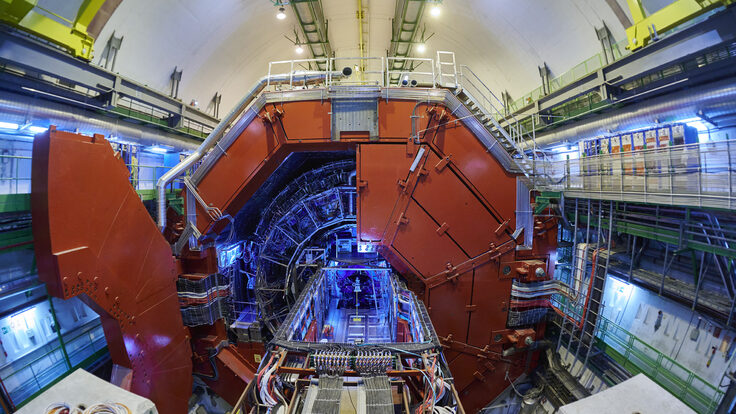Many have speculated about which theorists the Nobel Committee might honor for the prediction of the Higgs boson, but it was the experimentalists involved in the search for the particle who received recognition today.
The Fundamental Physics Prize Foundation announced that it will award a shared $3 million prize to the head of the Large Hadron Collider construction project and to each of the spokespersons who have led the CMS and ATLAS experiments since 1994. Scientists on the two experiments made headlines this summer when they announced the discovery of a new, Higgs-like particle.
The foundation, established by Russian tech-investor billionaire Yuri Milner, is in its second year of conferring annual prizes for major achievements in physics. The selection committee that chose this year's winners consisted of previous award recipients—all theorists and mathematicians. The committee also announced nine other prize-winners, five of whom are now eligible for the overall 2013 Fundamental Physics Prize to be presented at a ceremony at CERN on March 20.
The three groups at CERN will split their award money evenly: $1 million for work on the collider and $1 million for work on each experiment.
“It’s absolutely fantastic we were recognized as a team,” says Lyn Evans, who will share in the prize for his work leading the LHC construction, in a video interview recorded at CERN.
The foundation also named as recipients Peter Jenni and Fabiola Gianotti of the ATLAS experiment and Michel Della Negra, Tejinder Singh Virdee, Guido Tonelli and Joe Incandela of the CMS experiment.
“This prize awards the work made by the LHC experiments and the LHC accelerator over the years since the beginning,” Gianotti says in the CERN video.
Incandela adds, “This is really representing thousands of people’s work.”
In that spirit, the scientists are considering ways to use the prize money to support young scientists.
Their plans for the $3 million are not yet definite, but Evans can tell you what he will not be doing with his share: “I will not be driving around CERN in a Ferrari,” he jokes. “That would be very bad for my image.”







